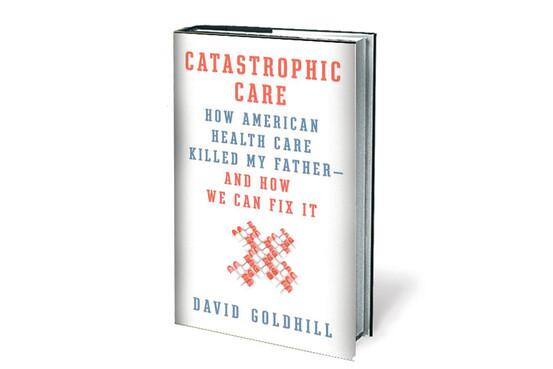
David Goldhill’s father died from
an infection he contracted in a well-regarded New York hospital.
That began a
quest to investigate America’s health
care system. In his book “Catastrophic Care: How American Health
Care Killed My Father and How We can Fix It,” Goldhill reports that nearly
100,000 Americans die every year from hospital-borne infections.
That’s more
than double the number of Americans killed in car crashes and five times the
number of those murdered.
How did
American hospitals miss the quality control revolution that affected the rest
of the American economy?
Goldhill
contends that our current system drives “excess treatment, cost inflation and
medical errors.” And he says the Affordable Care Act only worsens the perverse
incentives and would raise the cost of care.
He worries
that the exchanges will reduce competition among insurers, the subsidies will
make consumers less price-conscious and mandates will cause healthy people to
drop insurance.
The result
may be less coverage at higher costs than the authors of the Affordable Care
Act intended. He describes the health care system as “the Beast” that tolerates
excess and careless medicine.
“Bad health
care is crowding out needed care,” he writes.
His solution
is to combine the liberal desire for universal health care with a conservative
desire for market-oriented approaches.
He calls for
a national insurance safety net that covers health crises that are
“major, rare and unpredictable.”
“Insuring
everyone isn’t the same as insuring everything,” he writes.
That means
using insurance as it was meant to be used, for rare catastrophic events.
What the
health care system does disastrously is provide quality care at affordable
prices. In 2009, Medicare had $54 billion in proper payments.
Goldhill’s plan
involves health savings accounts, health loans and catastrophic insurance.
- Increase
money we put into health care and save the difference.
- Reduce the
use of unnecessary health care to some people so others may build savings.
- Cut
spending in ways that don’t hurt quality and transfer that into savings.
Money
currently put into the health system would accumulate in a tax-free account.
That money would be used to pay premiums for cradle-to-grave health insurance.
If you run
out of money, you can borrow against your future contributions. While it
doesn’t sound practical in today’s political system, the ideas are based on an
interesting set of principles. His plan is basically along the same lines as
Singapore’s national system.
“We’re stuck
in a vicious cycle in health care. The more we try to protect ourselves from
the realities of care, the more complex and unconnected from us the system
becomes,” he wrote. It’s far too complicated for the average person.
 RSS Feed
RSS Feed Twitter
Twitter
0 comments:
Post a Comment